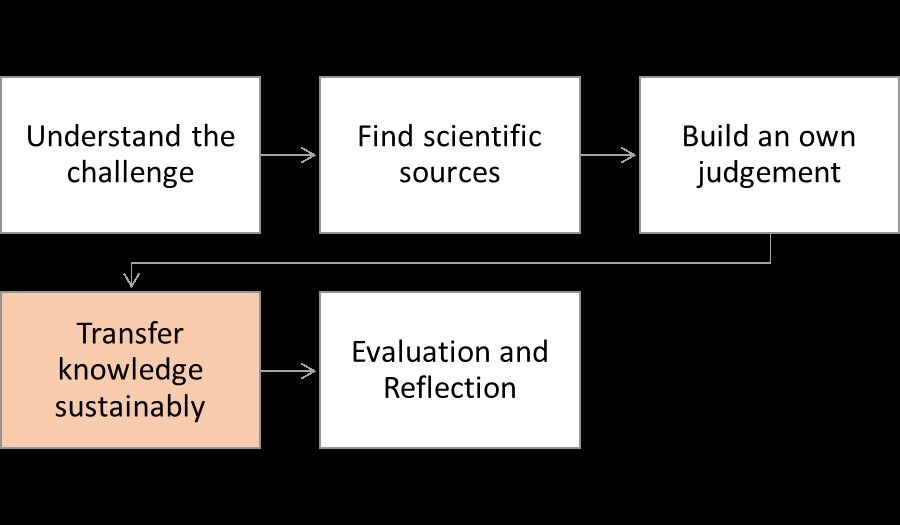RRI and Health Education in Zanzibar
On the 2nd of May 2022, the University of Bremen were the host for the 8th Mentoring Meeting on Education. This was a fantastic opportunity for the Resbios partners to come together and discuss how best to integrate the principles of RRI at an institutional level, within the context of education and the biosciences. The University of Bremen used this opportunity to introduce the audience to the doctoral project Proshed, an initiative of the University of Bremen, the Leibniz-Institute for prevention research and Epidemiology, and working in collaboration with the State University of Zanzibar, that aims to provide information on sustainable health and nutrition education to students in Zanzibar, Africa.
The Proshed project consists of a lecture and further online workshops that are designed to support health and medical students from the State University of Zanzibar. The offers shall provide them tools for a sustainable and efficient communication with their future patients, and the community at large.
An overview of one of a Proshed lecture, that took place in November and December of 2021 was presented. A lecture series that focused on the specific nutritional health challenges present in their local community, insights into current research on nutrition and health education for specific target groups, and best practices on how to use this information to inform their decision-making. This lecture was broken up into five blocks (detailed below), with the fourth part focusing on “transfer knowledge sustainably”, where groups of students develop an instructional strategy for a specific target group. For example, one group worked with a local education organisation- “ZanzibarHelp” – a school for students with mental and physical disabilities in Zanzibar, to develop and organize a short outreach event to educate these students about the importance of healthy snacking and long-term health.
This collaboration between Proshed and ZanzibarHelp was facilitated through the ResBios network.

Students´ Voices and Ramadan
In the block “evaluation and reflection”, the health and medical students were then asked to consider what further work could be done to support other students in their field. Based on the lecture and the final evaluation and reflection, some of the students developed an online format, that would serve as a digital hub for students interested in using the methods described in these Proshed sessions, and how it relates to nutrition and health education. The first contribution to this online format was a discussion about “Diabetes, Health and Nutrition during Ramadan”, which provided information on the research that was being done on how fasting during Ramadan effects patients with diabetes, and what could be done to support these patients during this period of celebration.
On-line format supports reflection about RRI issues
On reflection of the Proshed program and the resulting online format, with regard to RRI and education, it can be said, that the online-format provided the opportunity for health and medical students (and other interested persons) to participate in discussions on RRI-topics, without any prior knowledge (e.g. on health education or RRI) or responsibilities, and is an effective way to share information on current and relevant topics that impact local communities in Zanzibar. The online format allowed for information to be shared, as well as providing materials to support the needs of local societies. It was also a great opportunity for students to get involved and act as mediators to the people within their community, on topics which are important to them, as well as providing a platform for discussions and exchange, between themselves and with lecturers and researchers within these fields of study.
The participants of the UBremen 9th Mentoring Meeting on Education, as well as the participants of the Proshed online-format, suggested that it would be very beneficial to open up these sorts of initiatives and work alongside people from other disciplines and backgrounds, as this would provide more diverse perspectives on these issues, and expand the possibilities of learning from one another. Furthermore, it was highlighted, that it would be more sustainable and fruitful, if exchanges among different disciplines through these online formats, were integrated into the university curricula, and embraced as part of the collaborative nature of working within the fields of biosciences.
To read more about Proshed click here
The RRI, SDGs and Open Science

Design by Xurris, Powered by Balbina Sardà